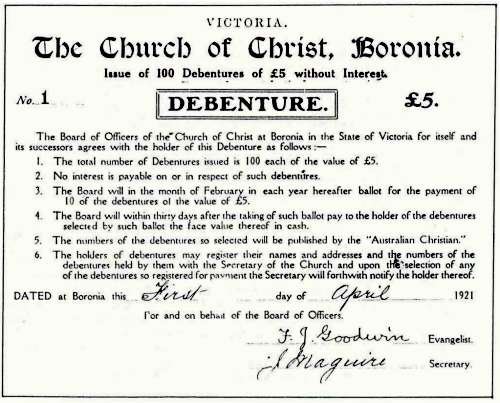What is a debenture?
Section 2 (30) of the Companies Act, 2013 defines inclusively debenture as “debenture” includes debenture stock, bonds or any other instrument of a company evidencing a debt, whether constituting a charge on the assets of the company or not.
Further, pursuant to Section 2(30) of the Companies Act, 2013 and notification dated January 03, 2018[1], the following type of instruments issued by a company shall not be treated as debentures:
- the instruments referred to in Chapter III-D of the Reserve Bank of India Act, 1934; [Chapter III-D of the Reserve Bank of India Act, 1934 lists down the following instruments:
- Derivatives;
- Money-market instruments;
and
- such other instrument, as may be prescribed by the Central Government in consultation with the Reserve Bank of India.
Can a company issue debenture?
The power to issue debentures can be exercised on behalf of the company as a meeting of the Board under the provisions of Section 179 (3) of the Companies Act, 2013. Further Section 71 of the Companies Act, 2103 deals with the issue of debentures.
Per Section 71 of the Companies Act, 2013, a company can issue debentures with an option to convert such debentures into shares, either wholly or partly at the time of redemption.
Note: A company which has issued wholly or partly convertible debentures, shall, at the time of conversion, take prior approval of members by passing a special resolution.
What are the types of debentures that can be issued by a company?
A company can issue secured and unsecured debentures. secured debentures may be issued by a company subject to such terms and conditions stated below. Further, a company cannot issue any kind of debentures carrying any voting rights, as debentures hold a position of debt and not equity in the first place.
What are the terms and conditions to issue secured debentures?
Rule 18 of the Companies (Share Capital and Debentures) Rules, 2014 (‘2014 Rules’) prescribes certain conditions to be fulfilled by a company in order to issue secured debentures:
- A company issuing secured debentures shall have to redeem such debentures within a period of 10 years and not later than that from the date of the issue. Provided that a company engaged in the setting up of infrastructure projects may issue secured debentures for a period exceeding ten years but not exceeding thirty years;
- The company shall secure the payment and interest of issued debentures by creation of a charge, on the properties or assets of the company, having a value which is sufficient for the due repayment of the amount of debentures and interest thereon;
- The company shall appoint a debenture trustee prior to the issue of prospectus or letter of offer for subscription of its debentures and execute a debenture trust deed (FORM SH-12) to protect the interest of the debenture holders within 60 days from the date of allotment of debentures;
- The security for the debentures by way of a charge or mortgage shall be created in favour of the debenture trustee on-
- any specific movable property of the company (not being in the nature of pledge); or
- any specific immovable property wherever situated, or any interest therein.
What are the general compliance requirements if a company wants to issue debentures – secured or unsecured?
- To take the following matters at the board meeting:
- Decide the type of debentures to be issued;
- Approval of increase in borrowing powers, if required;
- Appointment of debenture trustee, in case of secured debentures;
- Appointment of an expert for valuation of debentures;
- Authorise a director for creation of charge on the assets of the company, in case of secured debentures;
- Discuss and approval of the debenture subscription agreement;
- To call for a general meeting and filling of board resolution in Form MGT-14 within 30 days from the date of passing of the board resolution;
- To call for an extra-ordinary general meeting and pass a special resolution. The special resolution shall be filed in Form MGT-14 within 30 days from passing of resolution;
- In case a debenture trustee is to be appointed, consent of the debenture trustee shall be taken and also a denture trust deed shall be created in Form SH-12.
- Offer letter shall be given in Form PAS-4 for issuing secured debentures. Further Form PAS-4 has to be filed in FORM GNL-2 and Form MGT-14 with the RoC;
- File Form PAS- 3 which is the form for return of allotment with the RoC within 30 days from the date of allotment of debentures;
- File Form CHG-9 with the RoC for creation of charge
- A company issuing debentures shall create a debenture redemption reserve (DRR) account. As the term reserve implies to retain or create a security (in terms of debenture), the company shall create such reserve out of the profits of the company and the DRR reserve created shall be utilized for redemption of debentures.
- A company cannot issue a prospectus or make an offer or invitation to the public or to its members exceeding five hundred (maximum 500) for the subscription of its debentures, unless it has, before such issue or offer, appointed one or more debenture trustees.
Note: The stipulation to appoint a debenture trustee is mandatory, as the debenture trustee shall take steps to protect the interests of the debenture holders and redress their grievances.
[1] http://ebook.mca.gov.in/notificationdetail.aspx?acturl=6CoJDC4uKVUR7C9Fl4rZdatyDbeJTqg3r4jt5sfhFvyxdlRIdYVr8deGSMlR9CYIpEswjE79/cxq/1FyO2lezg==


